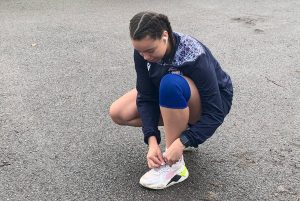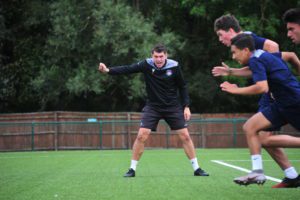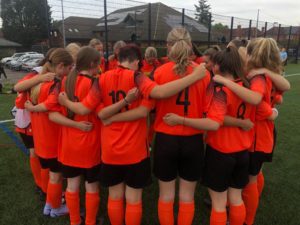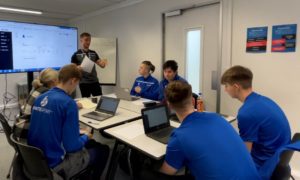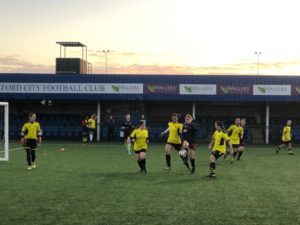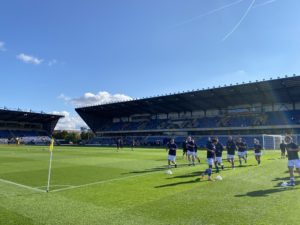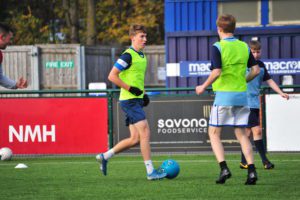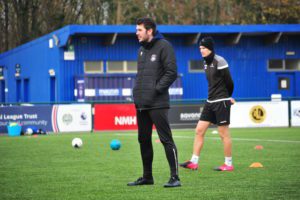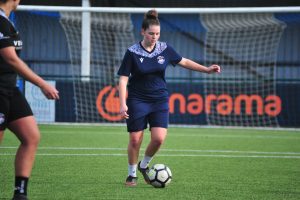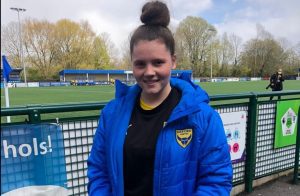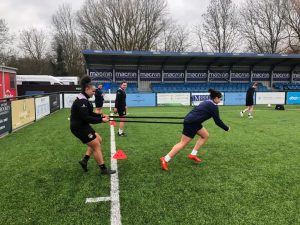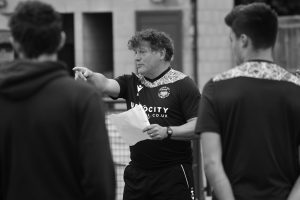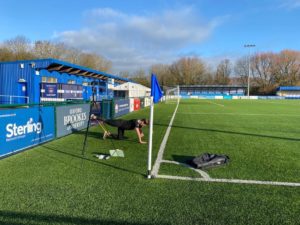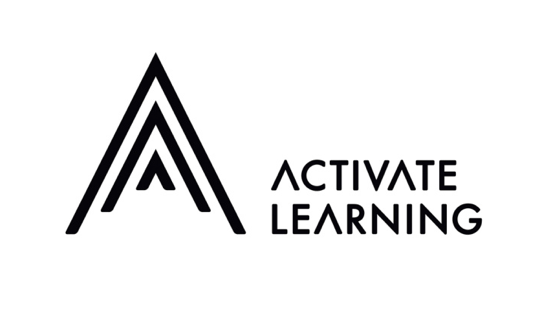Sport is blessed to be host to a variety of fulfilling careers across a range of disciplines.
One of the newest and most technologically advanced roles is that of a performance analyst. At the turn of the millennium the role did not exist.
Now, performance analysts sit at the heart of professional teams’ coaching staff, senior management and recruitment. The data helps form tactics, player development and talent identification.
Dominic Newton is performance analyst at Oxford City FC, Velocity Football and League One club Shrewsbury Town.
In the latest of our ‘Careers in Sport’ series, we speak to Dominic to learn more about the role and how Velocity Football supports students interested in the profession.
Performance analysis – what is it?
Have you ever watched Moneyball? If not and you are interested in a career in performance analysis, we recommend watching it.
Moneyball is based on the true story of Billy Beane’s attempt to assemble a competitive squad for Oakland Athletics baseball team’s 2002 season on a minimal budget.
We will not spoil the story and its ending, but the film documents the first universally recognised use of performance analysis to enhance team achievements.
Performance analysis is the process of assessing performance to develop an understanding of actions that can inform decision-making, optimise performance and support coaches and players in their journey towards optimal results.

Maximising data
Improvements in filming equipment and technology means the role of a performance analyst has developed significantly.
Prior to the introduction of various hardware and software, the role of a performance analyst was naively simplistic. A chief performance analyst would perhaps film and edit a match or training session and clip it into highlights before supplying it to the management team for review.
Now, with such high volumes of data readily available, it is the responsibility of a performance analyst to generate meaningful insights from matchday findings.
“Our role is about combining science and statistic to enhance development and reflect performance,” said Dominic. “Essentially, it’s a fresh way to assess how a team has performed compared to what the coaches see on the touchline.
“We’re able to influence the coaching process. Coaches can now look at the data performance analysts collect and improve team performance via science and digital assessment.”

Typical week
The role of a performance analyst varies from day-to-day.
Matchday tasks include filming the game – although increasingly fixtures are now being recorded via AI – and collecting statistics including possession, shots, corners and more.
Focus is then honed on developing suitable highlights packages after learning of the coaching team’s key performance indicators. Highlights can be used to enhance team performance ahead of the following fixture.
“A lot of our work is post-match clippings and preparing for the next game,” said Dominic.
“At Oxford City, I will ensure the entire game is filmed using VEO camera and distribute GPS pods to players to help analyse individual performances. The data we collect helps us understand which players have worked hard and which ones have not.
“This can be translated into training sessions to avoid increasing the risk of injury in players that have worked beyond their expected levels during a game. You can make performance analysis as technical or simplistic as you wish.”
Career pathways
At Velocity Football, student development via work experience placements is encouraged.
Most students have ambitions to fulfil a career in the sports sector and can gain valuable experience in their field of interest during their studies through our strong community partnerships.
Dominic said: “A qualification in a sport related field is important, but experience is valued highly by clubs too.
“Personally, I studied sport and exercise science – some people like to go down the route of getting a Masters for additional experience. I did a Bachelor’s degree then volunteered at Oxford City FC which led to a part-time role at the club and later my job with Shrewsbury Town.
“There are some good qualifications specific to performance analysis, but this is a new profession so the routes in are still developing.”

Inspiration
So, what inspired Dominic to become a performance analyst?
He said: “Before University, I knew very little about the sector. It was one of the modules on my sport and exercise science degree at Oxford Brookes University and that was where my passion started.
“Initially, I researched the sector to develop a great understanding of the role. I quickly realised performance analysis is looking at sport and enhancing team performance from a completely different view to the traditional form.
“There is a lot of work associated with the job. But it’s rewarding – especially when a team wins under the influence of your knowledge.”
Top tips
Being a performance analyst places you in a unique front row seat at the heart of a professional sports team.
Crunching numbers and translating stacks of data to enhance performance might at times be challenging. But the rewards can be equally satisfying.
Dominic concluded: “It’s a great job and working with members of management within a professional setup is a fantastic way to make a living.
“I advise all Velocity students I work with interested in the role to be prepared to put the hard work in. At first, your role might be voluntary and during unsociable hours, but people notice hard work.
“If you can volunteer for your local team and make a genuine impact on performance via analysis it can be extremely rewarding. Think back to Moneyball and how the impossible can be achieved by working smartly.”
“Be prepared to put in hard work – it might be voluntary and unsociable hours, but people can see hard work. It helps the team in the long run to analyse performances, it improves performance.
“It’s difficult as some clubs might not yet accommodate for analytics, but it is becoming more familiar and teams are investing in the sector. The more hands-on deck, the better – so get volunteering would be my advice and back that up with a recognised sports-based qualification.”

Sign up now
If you would like to learn more about the qualifications and workplace opportunities Velocity Football can facilitate, our friendly team can be contacted via [email protected] or 0300 303 0890.
Alternatively, visit Sign up – Velocity Football to enquire about signing up to enrol with Velocity Football for the 2021-22 academic year. A list of qualifications and entry requirements can be viewed here.









